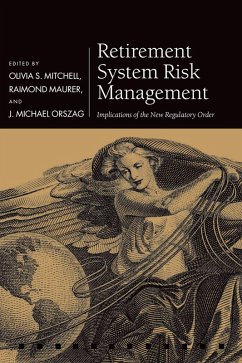In the wake of the worst financial crisis since the Great Depression, lawmakers and regulators around the world have changed the playbook for how banks and other financial institutions must manage their risks and report their activities. The US Congress passed the Dodd-Frank Wall Street Reform and Consumer Protection Act, and the European System of Financial Supervision (ESFS) is also crafting a framework to supervise regulated financial sector institutions including banks, insurers, pension funds, and asset managers. The implosion of the financial sector has also prompted calls for accounting changes from those seeking to better understand how assets and liabilities are reported. Initially banks were seen by many as the most important focus for regulatory reform, but other institutions are now attracting policymaker attention. There is logic to this in terms of managing systemic risk and ensuring a level playing field that avoids arbitrage between institutional structures. Yet the nature of pension and insurer liabilities is so different from that of bank liabilities that careful attention is needed in drafting appropriate rules. The new rules are having both direct and spill-over effects on retirement systems around the world. The first half of this volume undertakes an assessment of how global responses to the financial crisis are potentially altering how insurers, pension plan sponsors, and policymakers will manage risk in the decades to come. The second half evaluates developments in retirement saving and retirement products, to determine which and how these might help meet shortfalls in retirement provision.
Dieser Download kann aus rechtlichen Gründen nur mit Rechnungsadresse in A, B, BG, CY, CZ, D, DK, EW, E, FIN, F, GR, HR, H, IRL, I, LT, L, LR, M, NL, PL, P, R, S, SLO, SK ausgeliefert werden.









